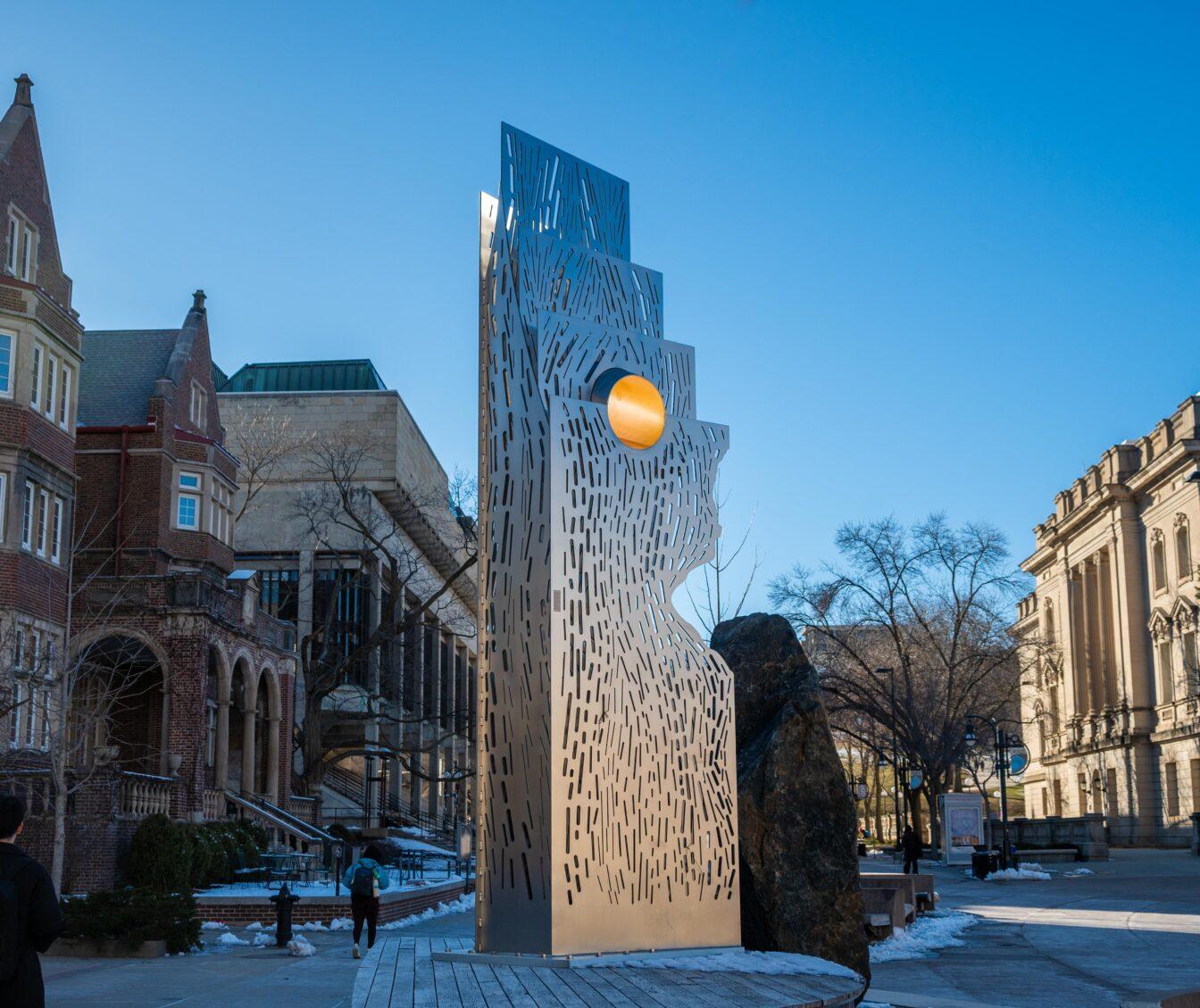The Madison Arts Commission celebrates its 50th anniversary this year. Commemorating the occasion, the department launched an initiative to tell Madison Arts’ story, collecting stories of people and projects which have influenced and created the art scene in Madison.
Participants can share their story with the department through their official website and can also expect to win $50.
MAC is led by arts administrator Karin Wolf, who has served the department for over two decades. Wolf herself was never an artist, but was always interested in how art makes its appearance in a community.
Growing up in St. Louis, Missouri, both of Wolf’s parents were teachers, exposing her to various art exhibitions. One memorable experience, Wolf said, was going to the Gateway Arch in St. Louis, a 630-foot arch with an observatory deck on the top, according to the Gateway Arch official website.
“I looked at the [arch] and said, who convinced an entire city to put an enormous silver arch here?” Wolf said. “I mean, it is architecture, but it doesn’t house anything. Who does this? Is this a job? How does it work?”
After graduating with a master’s in curriculum and instruction, Wolf volunteered to bring public art to the Hank Aaron State Trail in Milwaukee.
While working there, her experience increased her wish to pursue a career in public art. She applied for the position of arts administrator in Madison at that time and received the job in 2006.
Wolf said her experience, and said she and the department have had many highs and lows over the two decades under her leadership.
“There have been so many big blows, many controversies and many disappointing events — but also some incredible highs,” Wolf said. “There’s so many projects going on at any one time that you cannot really have a bad day.”
Wolf has been arts administrator for the City of Madison since 2006. She was responsible for multiple city-wide projects, including her famous “Neighborhood Plans,” which addressed neighborhood issues through art.
During her time as administrator, Wolf has seen the strict budget cuts made against the Wisconsin Arts Board, stating it was almost killed by such action. Without a public arts administrator, Wolf said, there exists no official designation to bring in new projects and ensure previous work is given care.
“[Wisconsin] had a very robust public art program,” Wolf said. “It was a model first all over the country and had a really good administrator, and then the state made a cut, a huge cut, to the Wisconsin Art Board and it almost killed it, but it’s still there.”
According to Wolf, this is still the major issue facing the Madison Arts Department and art in Madison — lack of public funding. Such issues, Wolf said, can be resolved by educating people on the importance of art.
“We should continually educate people about the arts as a tool and artists as creative strategists,” she said. “I don’t think you need to have a Streets Department, a Parks Department, a library, I think the arts needs to be part of all of those.”
Wolf sees art as a tool for expressing emotions and a mechanism to have important conversations which would otherwise become violent. She pointed to a 2020 initiative on State Street in response to George Floyd’s death as an example where artists were allowed to paint on boards on State Street, expressing their support and pain from the event.
“Before people were painting on State Street, windows were getting broken … but the two weeks we were on State Street, there was no further damage,” Wolf said. “People had a place to channel their emotion.”
For Wolf, negative emotion is equally as important to be felt as happiness, and art is the manner in which such emotion can be felt in a non-violent fashion.
“The only way through suffering is through it,” she said.
Art is the way for freedom of expression, according to Wolf — one she will defend as the arts administrator. Wolf also emphasized the importance of students pursuing arts, encouraging the student community to use the resources provided by the University of Wisconsin art department to engage in the arts.
Wolf said there are many opportunities students can access such as the Blink Temporary Program, which allocates $1500 for experimental, ad hoc, temporary art works.
She also urged students to use the university and its many resources, including the service learning in the arts class, which aim to create meaningful impact in the community through art.
Wolf, along with the department, wish to continue promoting art as a medium of free expression and a restoring force in the community.


